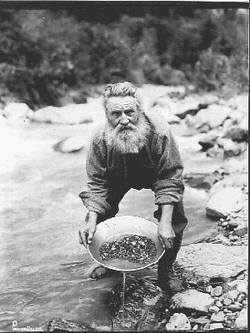
I pan and sieve my memories for the useful things I learned in my life. I am puzzled...
Many things I recall are quite normal and supporting of the way I supposed the world would be, good being good and bad - wrong - nothing special to learn there; but what to do about this:
Bad people helped me and good people did me harm.
Friends sold each-other in times of need while enemies joined for the sake of better causes.
Gentle people did evil things and evil ones good things.
Upright ones proved mad, as crazy ones spoke with good logic.
Respectful people were reeking prejudice, outcasts were open to truth.
Some who owed me forsook me and total strangers saved me from trouble, at their risk.
Honest people proved heartless, scoundrels with big hearts gave me with both hands.
Bright people acted like destructive fools while stupid ones were prudent and sensible.
Learned ones were obtuse know-alls and I saw the ignorant curious and improving.
Liars said the truth and honest men lied to crowds.
Kind people were stupid and silly people skillful masters of their trade.
Scrupulous believers proved hypocrites to their vows, cynical atheists died for moral justice.
Loving fathers were callous torturers, and whores, kind-hearted mothers.
Experienced people kept being dead wrong and beginners inexplicably right.
*
What to do about all this mess? It is not poetry. It is life.
What to learn from this chaos where everything is possible and it’s contrary too - at the same time and from the same point of view? What will you do under the deluge of inconsistency? Give up? Be wise by doing what you are told? Conclude that everything goes?
What do you learn from it?
*
What did I learn?
That things are complicated and must probably be suffered to remain so. We should not cheat ourselves or lie to other people that they are simple when they are not.
I learned that I can keep being myself only if I make my own mind, that I must judge to my best, and that is enough... for a while.
I had to grow accustomed and unperturbed to juggle in my mind contradiction unresolved but not denied. Contradiction makes you dizzy only if you cannot make up with endless change.
I understood the saying of an Indian sage that "The enemies of today may be the friends of tomorrow and the friends of today the enemies of tomorrow." This is true in many fields.
I grew prone to agree to disagree, peacefully, as long as I am left in peace.
I learned that there is a time for doubting everything and another to be certain for a while, to judge and decide; there are also some moments to simply trust.
I learned to trust myself “but make allowance for their doubting too.”
I learned how crippling can be persistence in one's strong honest beliefs in the face of fact and argument showing that it is the time to disbelieve.
I learned that in human matters, precision is far from truth but luring us into error. In such matters conscious trust is to me as useful as fact, provided I discern the difference.
I learned to make peace with the uncertainty that what I do not know and will never know is infinite; I lost the petty need to reduce that infinity to my little knowledge. This joyful, prideful humility - gives me balance and boldness in the middle of the flow.
I learned to ground my knowledge on the little I know, untroubled by the million reserves I always keep in mind.
I grew reluctant to judge people once for ever just because I must do it quickly from time to time.
I learned not to weigh people on what they were or what they are and do and have now, but on what I foresee them to become in time.
I learned to find out or even decide who I am, what I like and what I dislike and hate, value or neglect, what I respect and what I despise in the private garden of my soul.
I learned to stick to my own compass and keep close to my own values, because I chose so, aware of changing winds and tides, accepting that “there is a time for everything.”
I learned that it is possible, necessary and advisable to see the good grain inside the bad and the bad seed inside the good fruit, like the contrary spots in yin and yang; this makes you much stronger, even when you fight against them.

 RSS Feed
RSS Feed